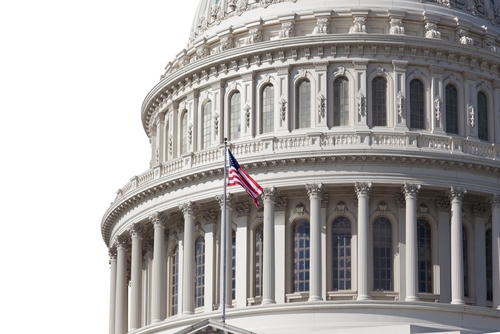
A new report released by U.S. Sen. Gary Peters (D-MI), chairman of the Senate Homeland Security and Governmental Affairs Committee, called out cumbersome traveler screening among federal agencies and insufficient oversight of discrimination.
The report was looking into the terrorist watchlist and the additional measures into which it has expanded. That list has grown to approximately 1.8 million records as of November 2022, up from 150,000 in 2004.
“As federal agencies continue to work diligently to protect our national security and keep travelers safe, it is crucial that we are doing so in an effective way that upholds our country’s civil liberties,” Peters said. “My report examines the current processes for safeguarding our nation against terrorist and other threats at airports and other ports of entry, and gives concrete steps to improve these practices and protect the diverse communities in Michigan and across the country who feel like they are unnecessarily subjected to intrusive screenings with no recourse. This report will increase transparency and make recommendations to increase national security, build confidence that our practices align with threats, and help ensure resources are focused efficiently.”
Specifically, Peters pointed to 22 mechanisms that could result in additional airport and port of entry screening for Americans, as well as resulting denial of ability to travel.
That word denial is particularly critical, as Peters’ report noted that the process to redress additional screening or someone’s addition to the terrorist watch list lacks transparency. Even Congress lacks a way to see how many errors, corrections or revisions are made as a result of rectification requests. Each agency along the way can screen travelers under different authorities and with different reasoning, but neither the Transportation Security Administration (TSA) and Customs and Border Protection (CBP) collect data to assess whether individuals and groups face repeated screening due to their differing approaches.
It is not the only data gone uncollected. Arab, Muslim and South Asian American communities in particular reported being unfairly targeted by current screening practices, but federal agencies do not effectively assess whether discrimination occurs, according to Peters. In all, the chairman painted a picture of an executive branch problem that leaves innocent Americans in the line for fire.
“For far too long the Arab American community has endured costly and humiliating travel experiences with little to no understanding or recourse. The lack of transparency surrounding watchlists and screening has directly contributed to the ongoing targeting of our community,” said Abed Ayoub, national executive director of the American-Arab Anti-Discrimination Committee (ADC).
In response to the report’s findings, it also made several recommendations. These included reforms to the redress process by the Homeland Security Secretary and a full review of the terrorist watchlist. On the Congressional side, it also called for creation of a Screening and Watchlisting Advisory Council at the Department of Homeland Security (DHS) to provide advice on screening, watchlisting and redress policies going forward. On top of this, it suggested that DHS begin tracking all additional screenings by TSA and CBP and to provide annual reports to Congress on the subject.




